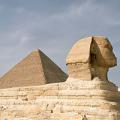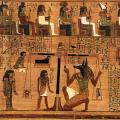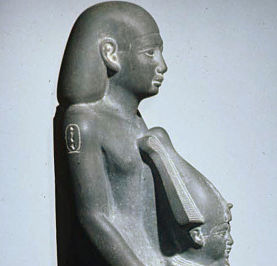5. Father Knows Best: Moral and Political Philosophy in the Instructions
Ethical reflection in ancient Egyptian grave inscriptions and in works of moral advice, such as the Maxims of Ptahhotep and the Instructions named for Amenemope, Ani, and Merikare.
Themes:
• S.L. Adams, Wisdom in Transition: Act and Consequence in Second Temple Instructions (Leiden: 2008), chapter 1.
• A. Black, A World History of Ancient Political Thought (Oxford: 2009).
• F. Hagen, An Ancient Egyptian Literary Text in Context: The Instruction of Ptahhotep (Leuven: 2012).
• C. Jacq, L'enseignement du sage égyptien Ptahhotep, le plus ancien livre du monde (Paris: 1999).
• D. James, “The Instruction of Any and Moral Philosophy,” in A.G. Mosley (ed.), African Philosophy: Selected Readings (Englewood Cliffs: 1995), 147-55.
• M. Lichtheim, Ancient Egyptian Literature, Vols. 1-3 (Berkeley: 1973-1980).
• J. Maybee, “The Instruction of Any: An Ancient Egyptian Philosophical Theory of Ethics,” African Philosophy 12 (1999), 149-74.
• R.B. Parkinson, The Tale of Sinuhe and Other Ancient Egyptian Poems, 1940-1640 BC (Oxford: 1997).
• N. Shupak, “The Instruction of Amenemope and Proverbs 22:17–24:22 from the Perspective of Contemporary Research,” in Seeking Out the Wisdom of the Ancients: Essays Offered to Honor Michael V. Fox on the Occasion of His Sixty-fifth Birthday (Winona Lake: 2005), 203-20.
• W.K. Simpson, The Literature of Ancient Egypt: An Anthology of Stories, Instructions, Stelae, Autobiographies, and Poetry, 3rd ed. (New Haven: 2003).
• N. Strudwick, Texts from the Pyramid Age (Atlanta: 2005).
• T. Wilkinson, Writings from Ancient Egypt (London: 2016).







Comments
Add new comment